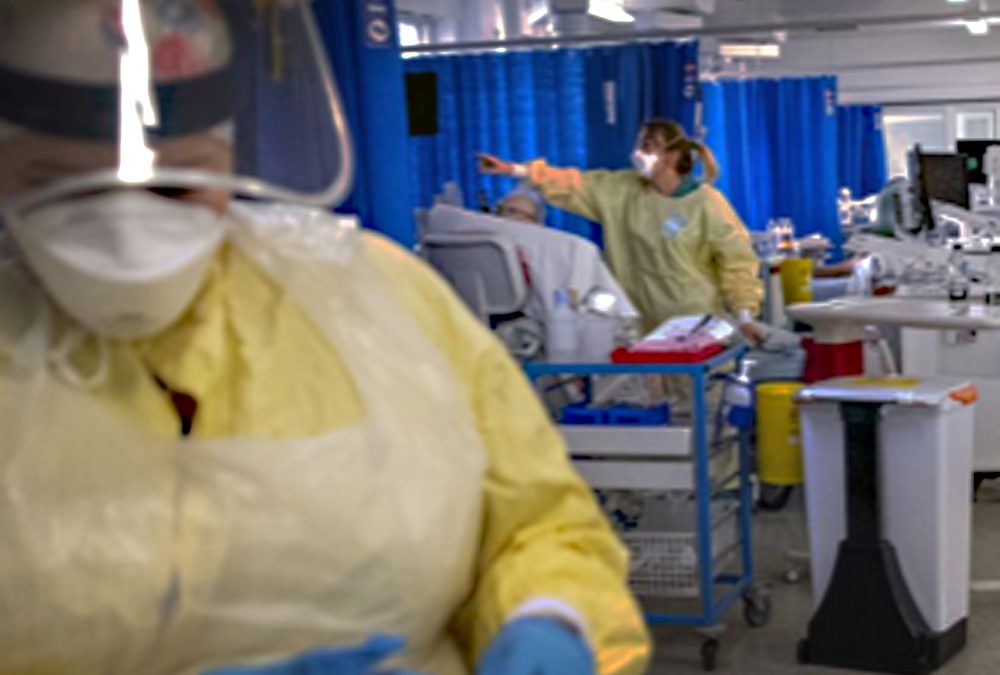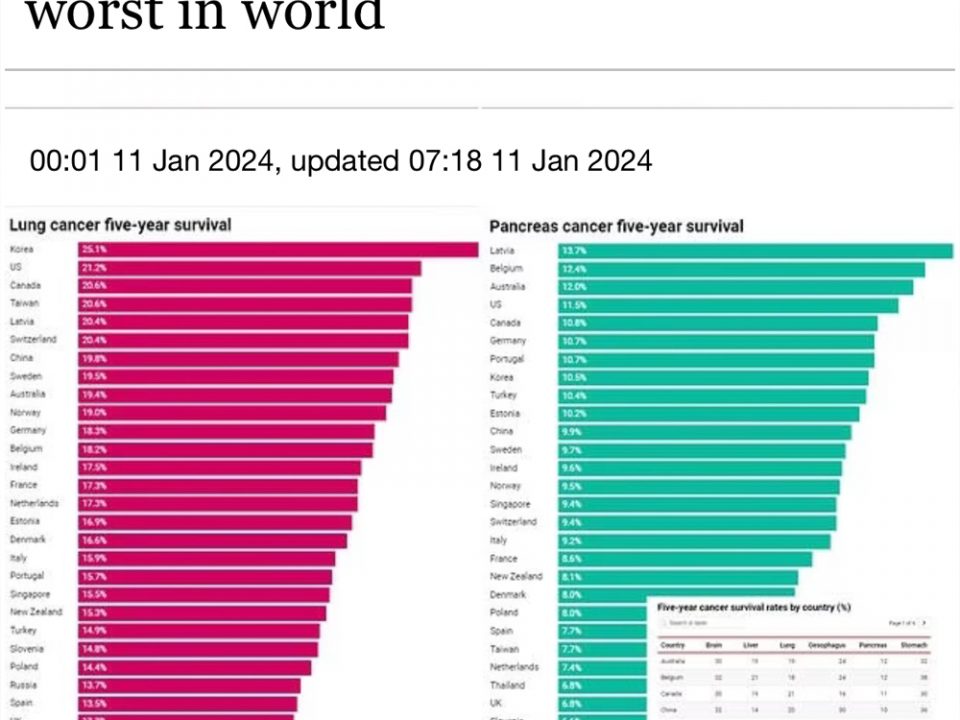
Health News – June 2022
31 May 2022
Health News – August 2022
5 August 2022Dear Surrey Circle Health, Health News reader, Welcome to another edition of your favourite health news related bulletin, with a roundup of half a dozen relevant and topical articles that have been in the news & media within this past month, as we make the most of summer, whether you be in the UK or having ventured abroad for that well deserved holiday, please enjoy!
6th June – COVER Mag “Self-reported Long Covid symptoms hits 2 million people”
The latest figures from the Office of National Statistics (ONS) show a further 200,000 people have self-reported symptoms of Long Covid in the last month.
Data published on I June shows that 2 million people in private households throughout the UK self-reported symptoms of Long Covid persisting over 4 weeks as of 1 May, representing 3.1% of the total UK population. The latest data represents a month-on-month increase of 200,000 people between the early April and the start of May, double the number recorded between March and April.
6th June – Daily Mail “Trial for cancer drug sees disease ‘disappear’ in EVERY participant”
- Clinical trial of ‘Dostarlimab’ cured 18 patients in the US of colorectal cancer
- One researcher said that it was the ‘first time this has happened’ in a cancer trial
- It is still too early to declare the drug a cancer cure because the trial was small
- Doctors are expanding trial for gastric, prostate and pancreatic cancer patients
A new colorectal cancer drug has shocked researchers with how effective it is against the highly dangerous disease, after it virtually cured every member of a clinical trial. Dostarlimab, a monoclonal antibody drug that that is already approved to treat endometrial cancer in the UK, smashed expectations in a trial at Memorial Sloan Kettering Cancer Center in New York.
One year after the trial ended, each of the 18 participants’ cancer had gone into remission, with doctors unable to find signs of the cancer in their body. While the trial was small, it is considered game-changing, and sets up the drug as a potential cure for one of the most dangerous common cancers known.
However, Dostarlimab can only be used on up to a tenth of colorectal cancer patients who have a genetic mutation in their tumour, which all trial participants had. Dr. Luis Diaz, one of the lead authors of the paper, said: “I believe this is the first time this happened in the history of cancer. It’s really exciting. I think this is a great step forward for patients. We are investigating if this same method may help other cancers where the tumors can be MMRd. We are currently enrolling patients with gastric (stomach), prostate, and pancreatic cancers”.
17th June – The Mirror “Covid on the rise as hospitalisations climb 30% in a week”
The number of Covid hospitalisations has shot up in the previous week amid fears two Omicron sub-
variants, BA.4 and BA.5 could trigger a new wave of the virus. Over 1,000 more Brits are in hospital with the deadly virus today than this time last week according to the latest Government data.
The total number of patients as of June 13 stood at 4,421, up 1,042 (30.9%) on seven days prior. This hike comes as health trusts are seeing the number of beds occupied by Covid patients rebound after weeks of steady decline and rise again.
The number of people testing positive for the virus has risen nearly 70% in the past seven days, up 25,505 people, after a prolonged period that saw case rates even out.
21st June – Metro “Unfairer sex! More women than men hit by long Covid”
Women are far likelier to suffer long Covid than men, a study has shown. They are more at risk of fatigue, ear, nose and throat issues, low mood, skin problems, trouble digesting food and painful joints. But men were more likely to get side effects such as diabetes and kidney disorders, researchers found.
Around 2million people in Britain – three per cent of the population – are suffering with long Covid, latest Office for National Statistics figures show. Numbers are rising with nearly 400,000 reporting their day-to-day activities have been ‘limited a lot’ and 376,000 saying they have had it for more than two years.
‘Differences in immune system function between females and males could be an important driver of sex differences in long Covid syndrome’, the US-based Johnson and Johnson team wrote. Females mount more rapid and robust innate and adaptive immune responses, which can protect them from initial infection and severity. However, this same difference can render females more vulnerable to autoimmune-related diseases.’
The research – using existing studies into more than 1.3million people – is among the first to break down specific conditions associated with Covid by sex. Their findings show facts and figures on the disease among men and women should be collected and analysed separately, the experts said.
21st June – The Telegraph “Why everything we know about breakfast is wrong”
The most important meal of the day? The secret to weight loss? Smoothies are better than bacon? A nutritionist sorts fact from fiction
If you grew up breakfasting like a king, it might be time to think more like a pauper when it comes to your first meal of the day. Breakfast is back in the headlines with Professor Tim Spector of King’s College London, the gut health and nutrition guru, advising that we all delay our first meal of the day if we want to stay healthy and lose weight.
It turns out that the microbes in our gut have a circadian rhythm like us and need a rest period, which helps them to become more efficient at burning food. As most of us eat our evening meal much later than we used to, it is difficult to achieve a 14-hour fasting period.
Studies suggest that skipping breakfast, or at least shifting it to 11am to create an overnight fasting window of at least 14 hours, could help people to lose 4 to 11 pounds of weight over several months. A study published in Cell Metabolism found that participants following this time-restricted eating pattern saw a 3 per cent reduction in their weight and a 4 per cent reduction in abdominal visceral fat after 12 weeks.
There’s a good body of evidence to suggest that a nourishing breakfast can help with cognitive function and work efficiency. Since the main fuel for the brain is glucose, by having breakfast we boost our blood glucose levels which has a direct effect on brain function.
A study of 527 Spanish high school students found that those who ate a nutritious breakfast had better health-related quality of life and lower levels of stress and depression than those who ate a poor-quality breakfast. In fact, the study found skipping breakfast was preferable to eating a bad one.
Unfortunately, our traditional breakfast foods are not those most likely to get us off to the best start nutritionally. Many are comprised of simple carbohydrates, like toast and jam or shop-bought cereals, which will cause blood sugar levels to rise sharply – rather than provide slow, sustained energy. Other breakfast options such as bacon and sausages are high in saturated animal fat and offer little in the way of fibre, vitamins, minerals and prebiotics/probiotics for good gut health.
Balance your macros (essentially, your protein, carbohydrates and fats). Include complex carbs like wholegrains from oats or wholegrain bread, lean protein from dairy or eggs and healthy fats from avocados, nuts and seeds. Have some fruit and vegetables. Have berries and bananas in a smoothie or on porridge, overnight oats with apple, or spinach, tomatoes and spring onions with eggs. Include some pro and prebiotics for a healthy gut. Probiotics are a kind of fibre that feeds the gut bacteria and is found in foods like oats, apples, onions and asparagus.
If nothing on earth is going to come between you and your brekkie, the best advice is to choose a healthy, balanced one that will deliver a good hit of nutrition and sustained energy. If you can happily go without, do – or at least push it back a couple of hours. Who knows, you might just lose a few pounds.
27th June – Independent “What are the isolation rules if you have Covid?”
Current guidance means public no longer legally required to enter quarantine but doing so advisable for safety of others, particularly as cases rise
Boris Johnson ended the UK government’s “Plan B” social restrictions for dealing with the Omicron variant of the coronavirus in England on 24 February 2022, apparently drawing a line under the lockdown era once and for all.
That last revision to the rules also meant that those who tested positive for Covid-19 were no longer legally required to self-isolate, scrapping a previous requirement that the unwell quarantine for at least five days and only emerge after testing negative twice thereafter.
The country saw a 43 per cent spike in cases at the beginning of June, seemingly caused by people coming together to celebrate the Queen’s Platinum Jubilee over the course of a four-day weekend. Healthcare chiefs have warned a new outbreak will have a significant impact on an NHS “already on its knees” and expressed concern over the return of major live events like Glastonbury, Notting Hill Carnival and the Edinburgh Festival, which could become super-spreader sites if precautions are not taken.
Depending on how the situation develops from here, new measures could eventually become necessary to rein in transmission, including the rollout of second vaccine booster jabs. For now though, the current NHS advice is that, if you believe you have symptoms associated with Covid, you should take a lateral flow test and isolate at home for five days if you test positive to avoid passing it on to others, although, again, this is not a legal requirement.
So that’s a wrap on another month, unfortunately more Covid on the increase again themed than in
more recent months. Therefore, as you enjoy these sunnier summer days, please be mindful of the upturn in infections, having gone around 2.5 years dodging it I for one don’t want to get caught out now! Until August please stay safe and well.
Kind regards,
Daniel Donoghue
MD, Surrey Circle Health
Specialist PMI Healthcare Brokers





